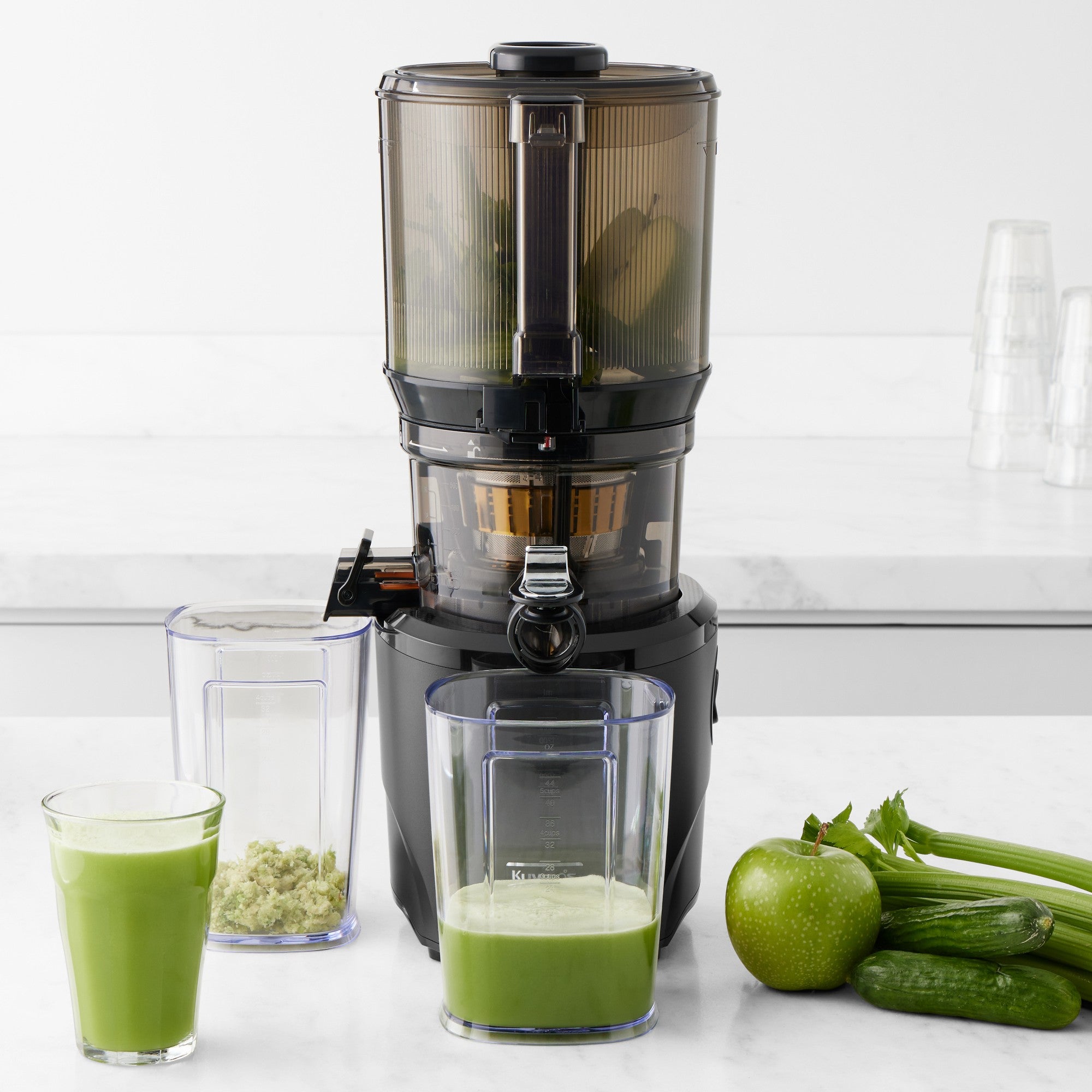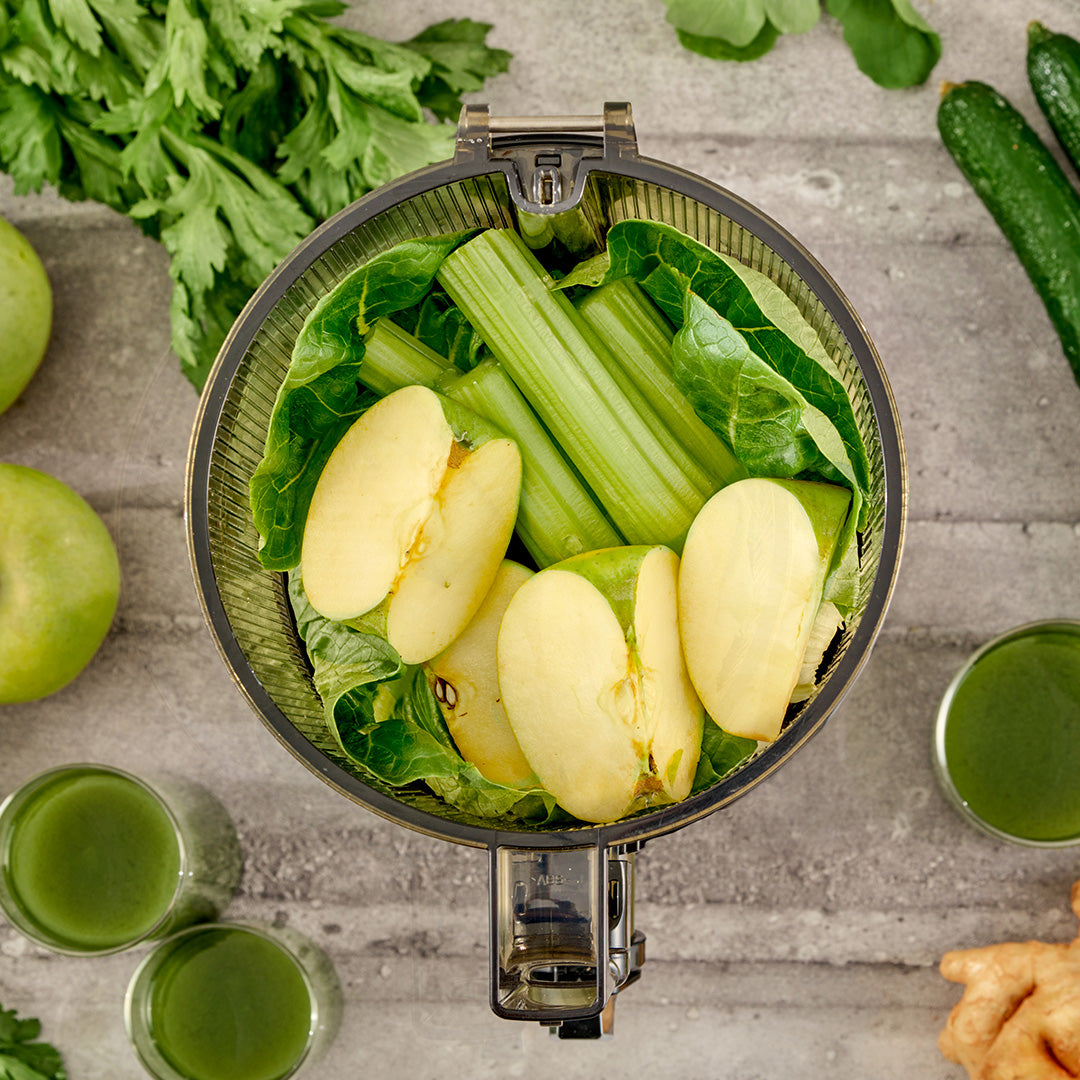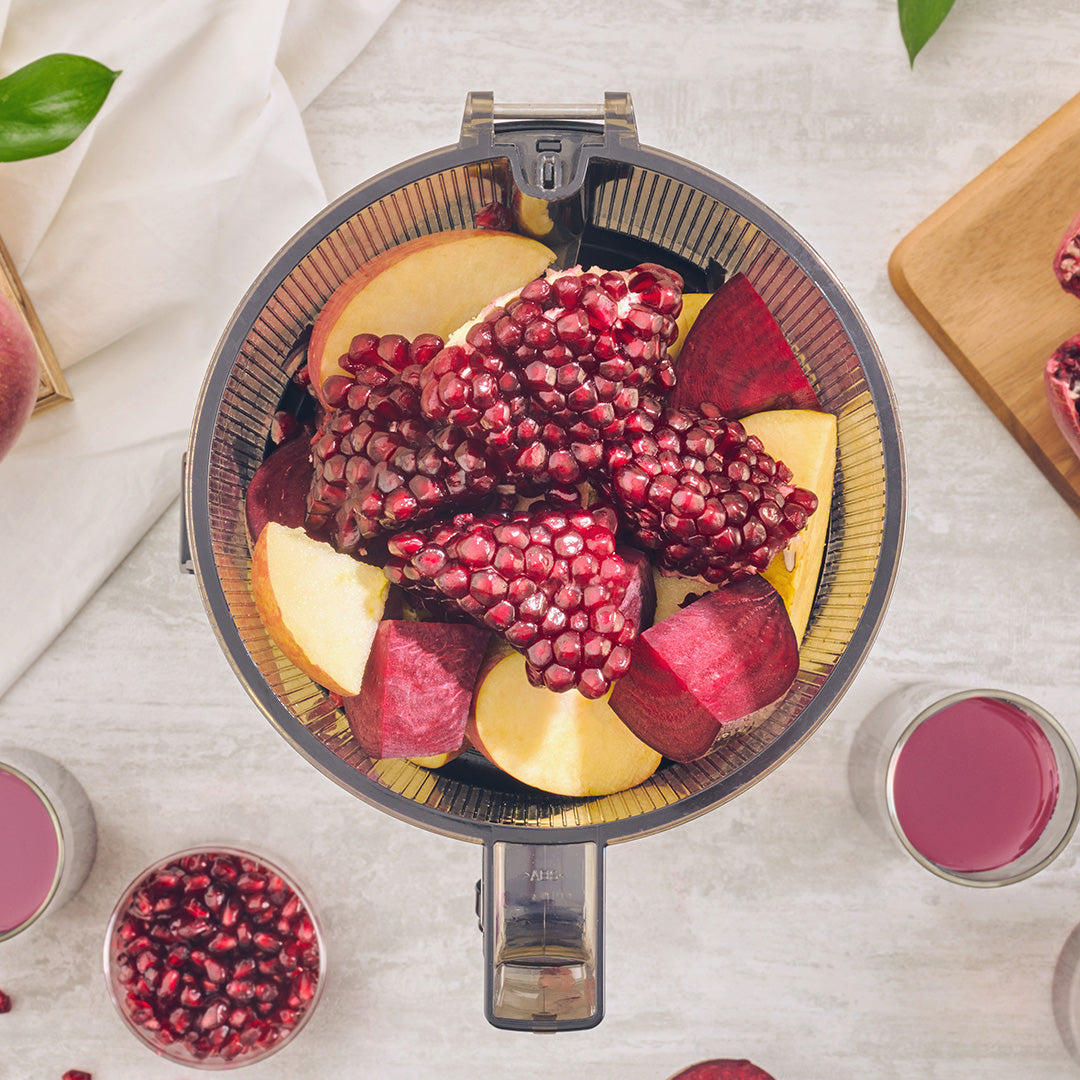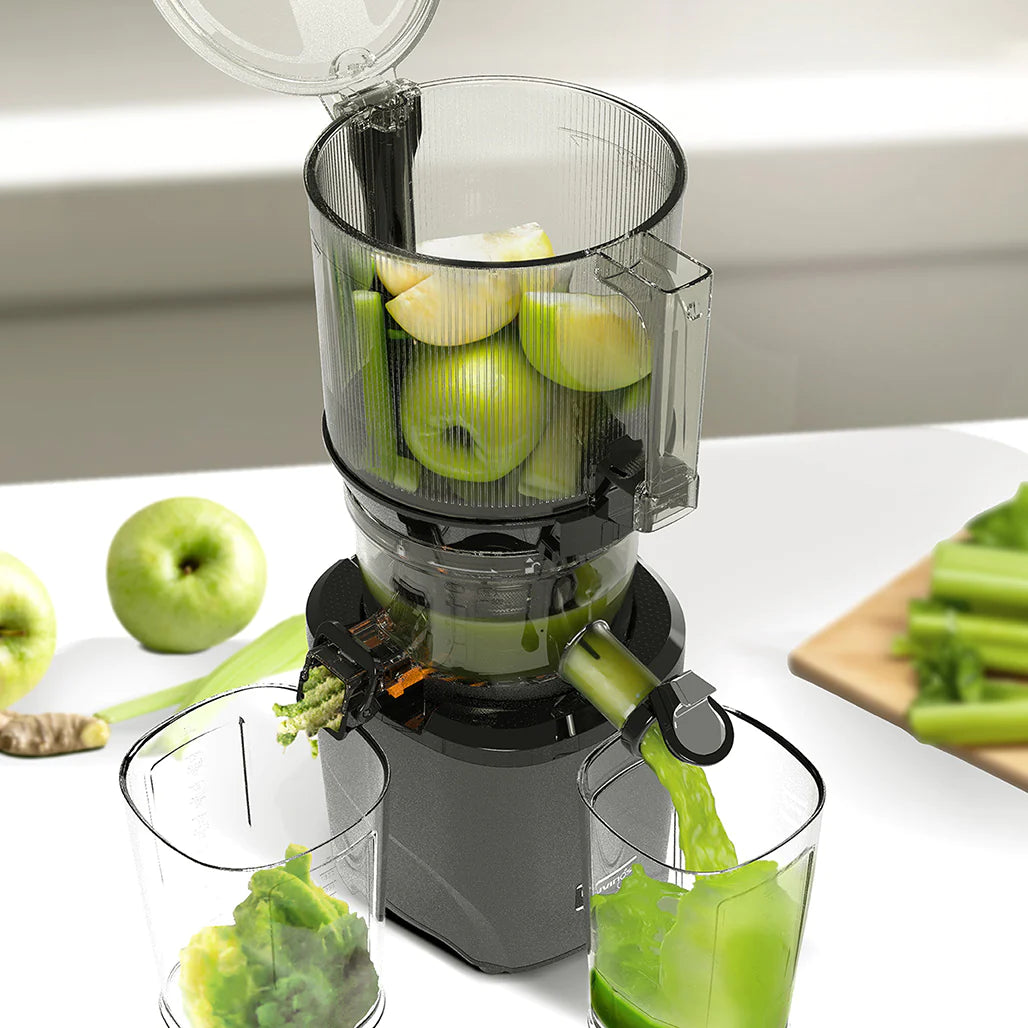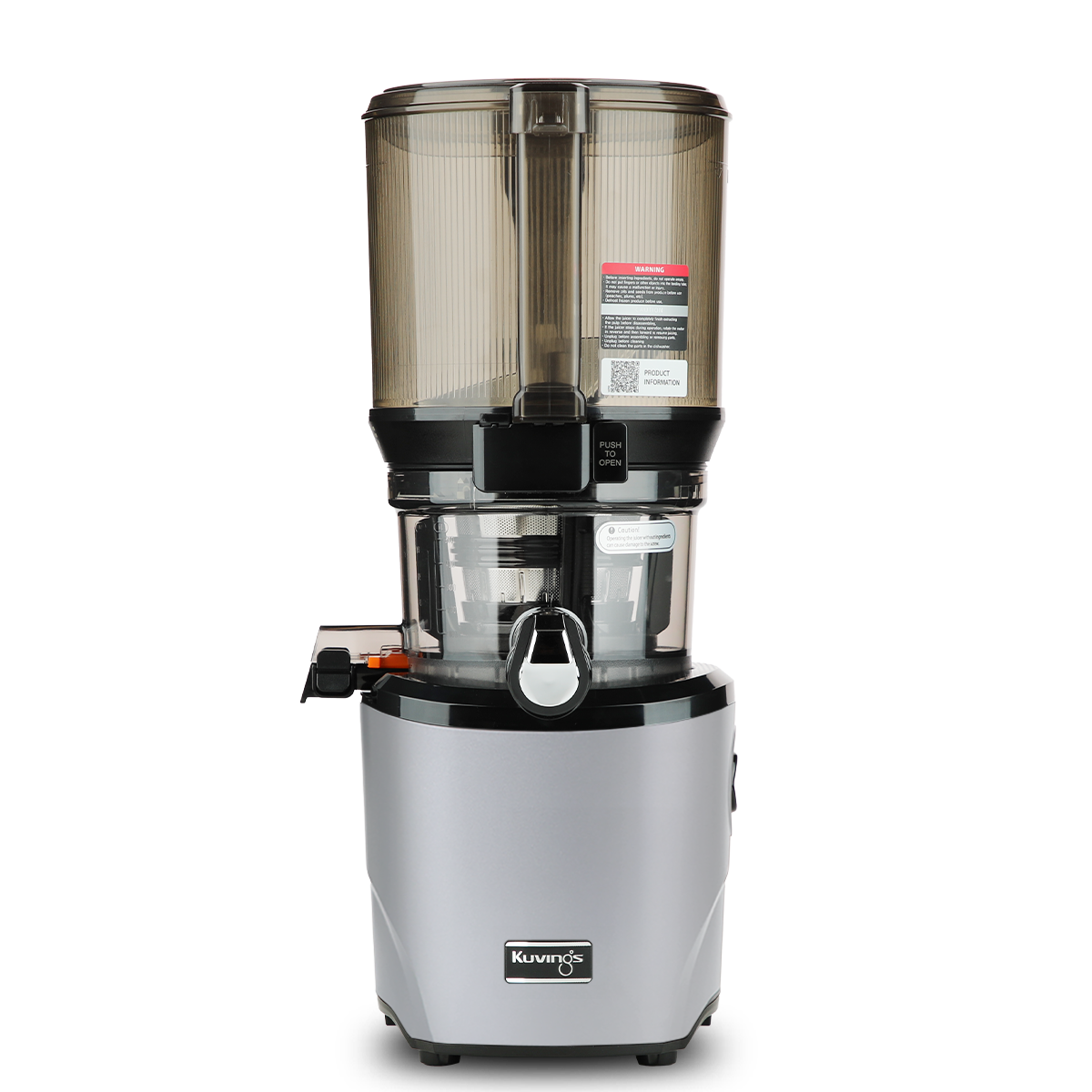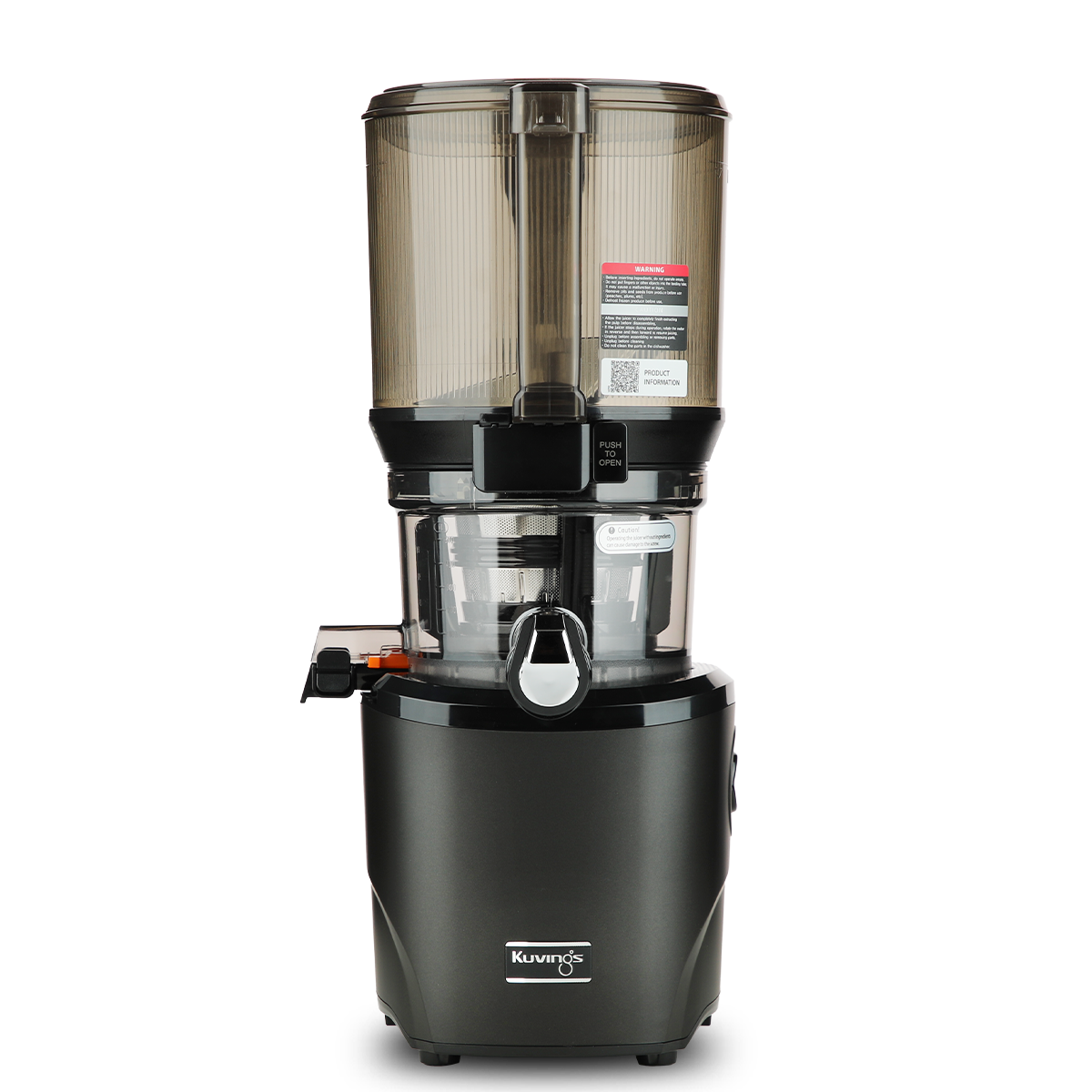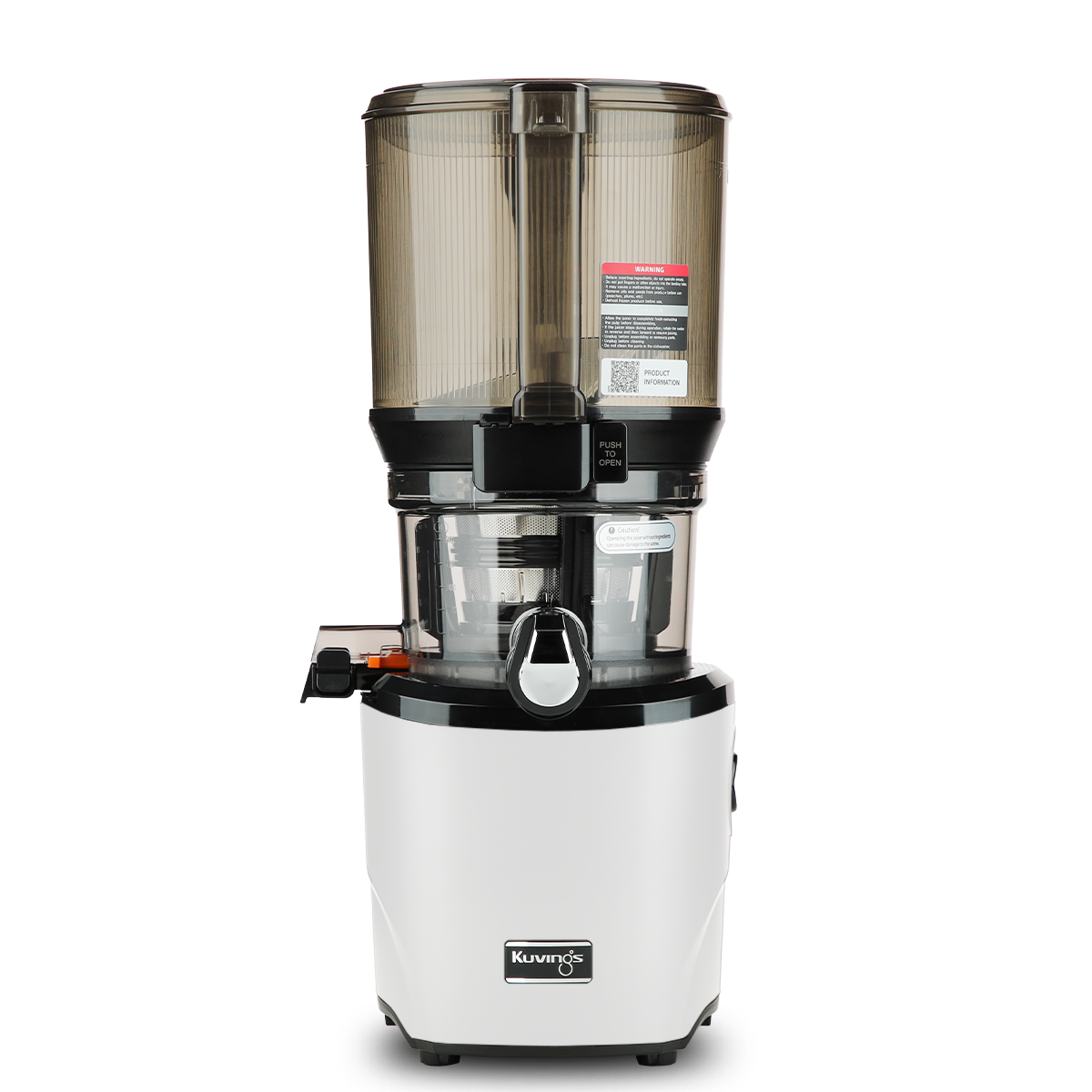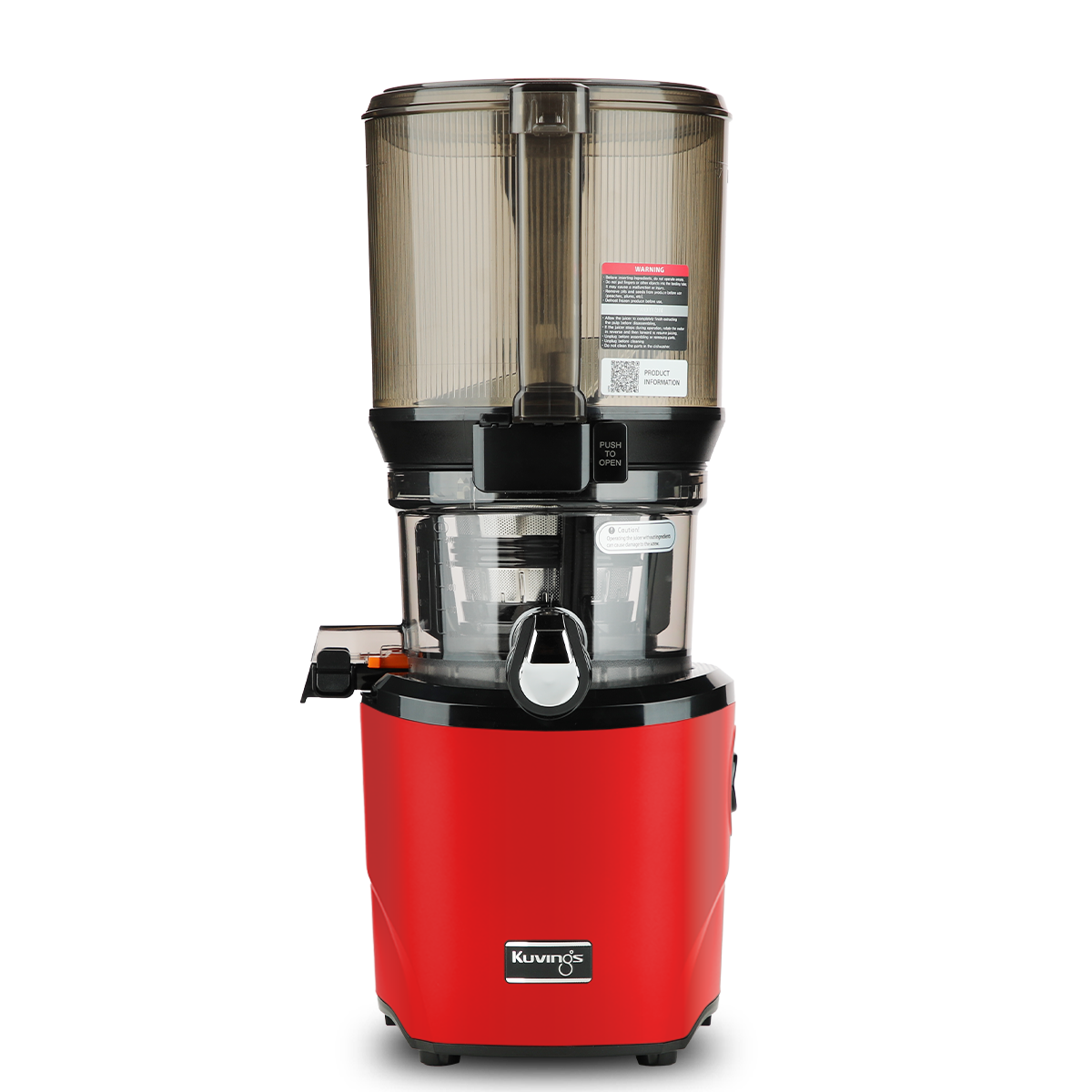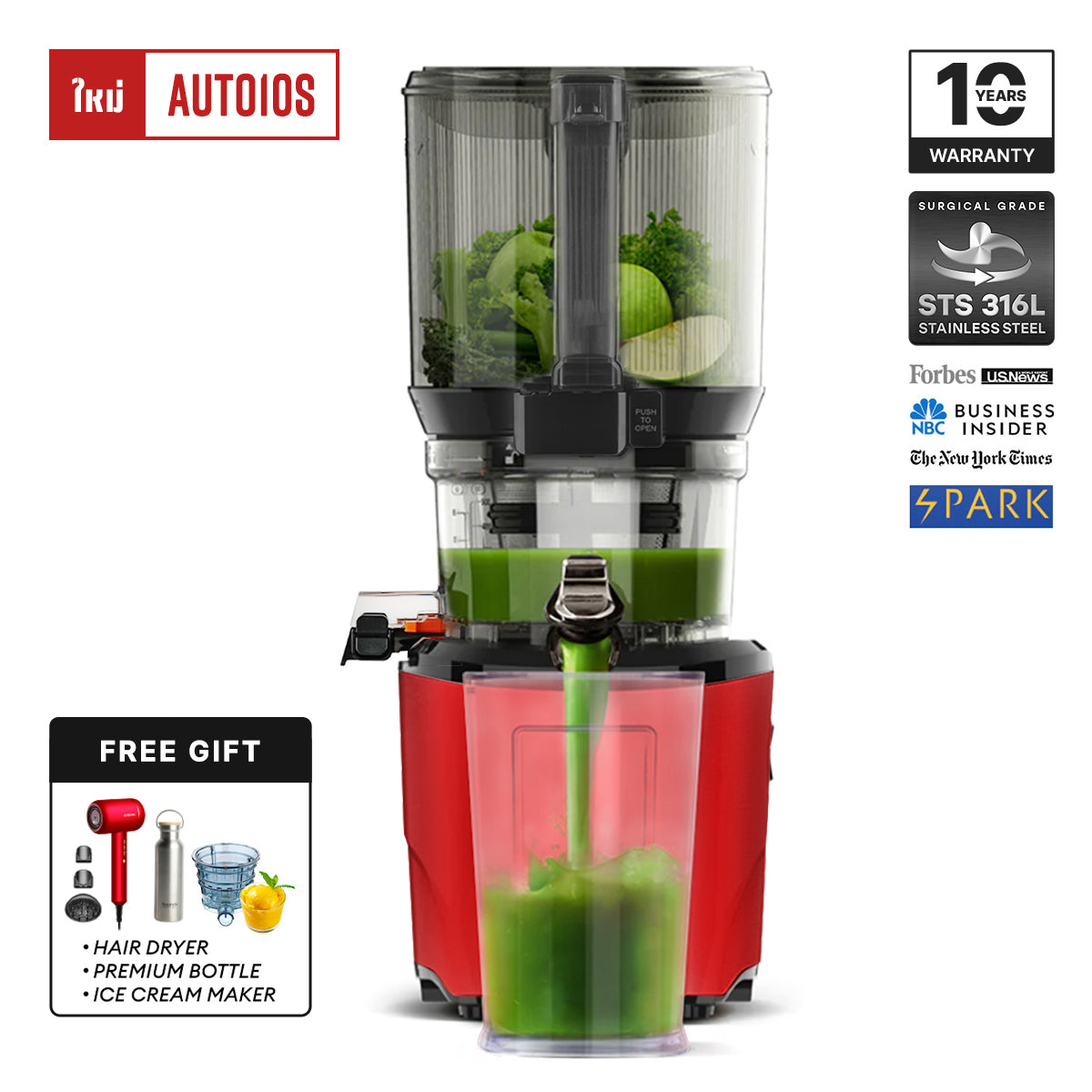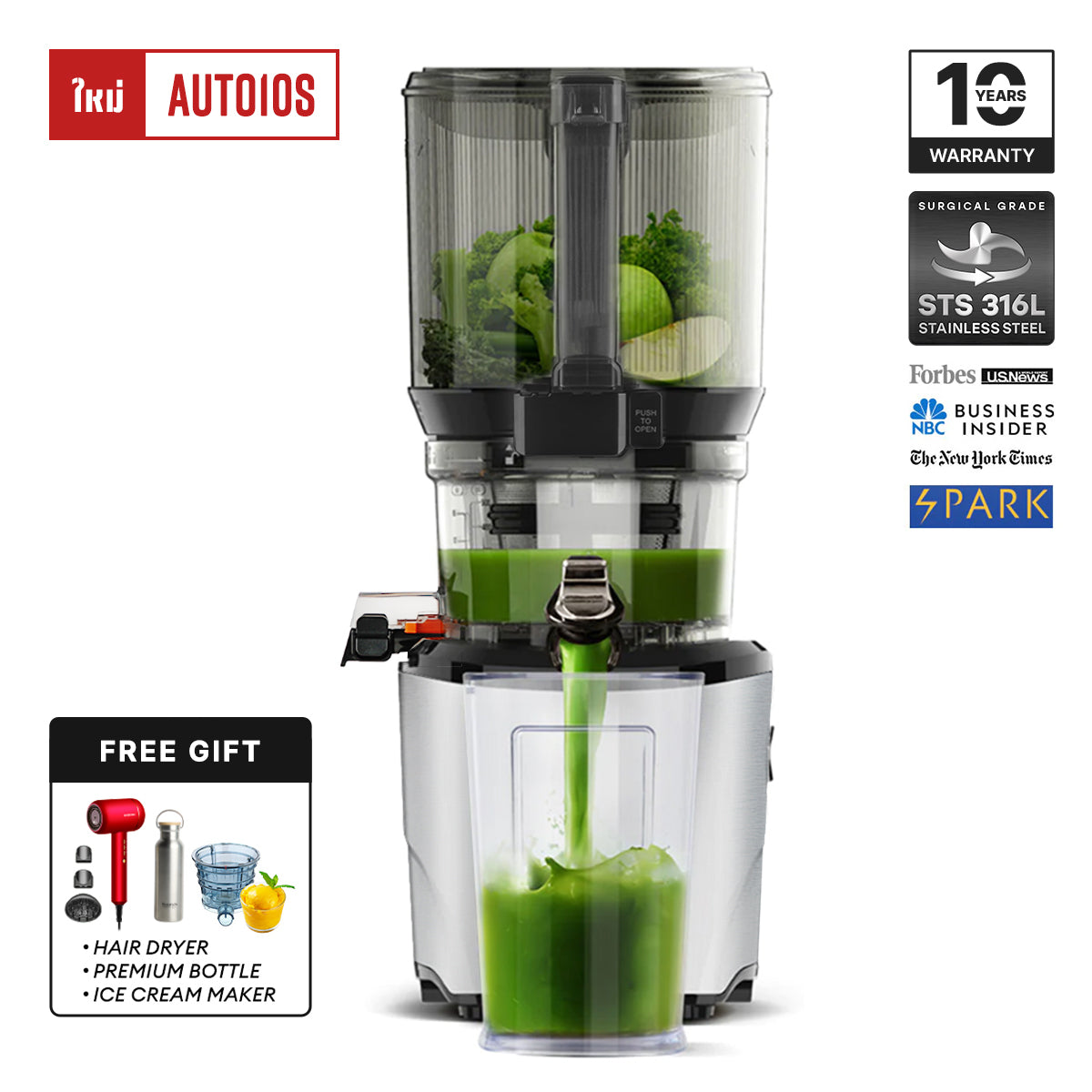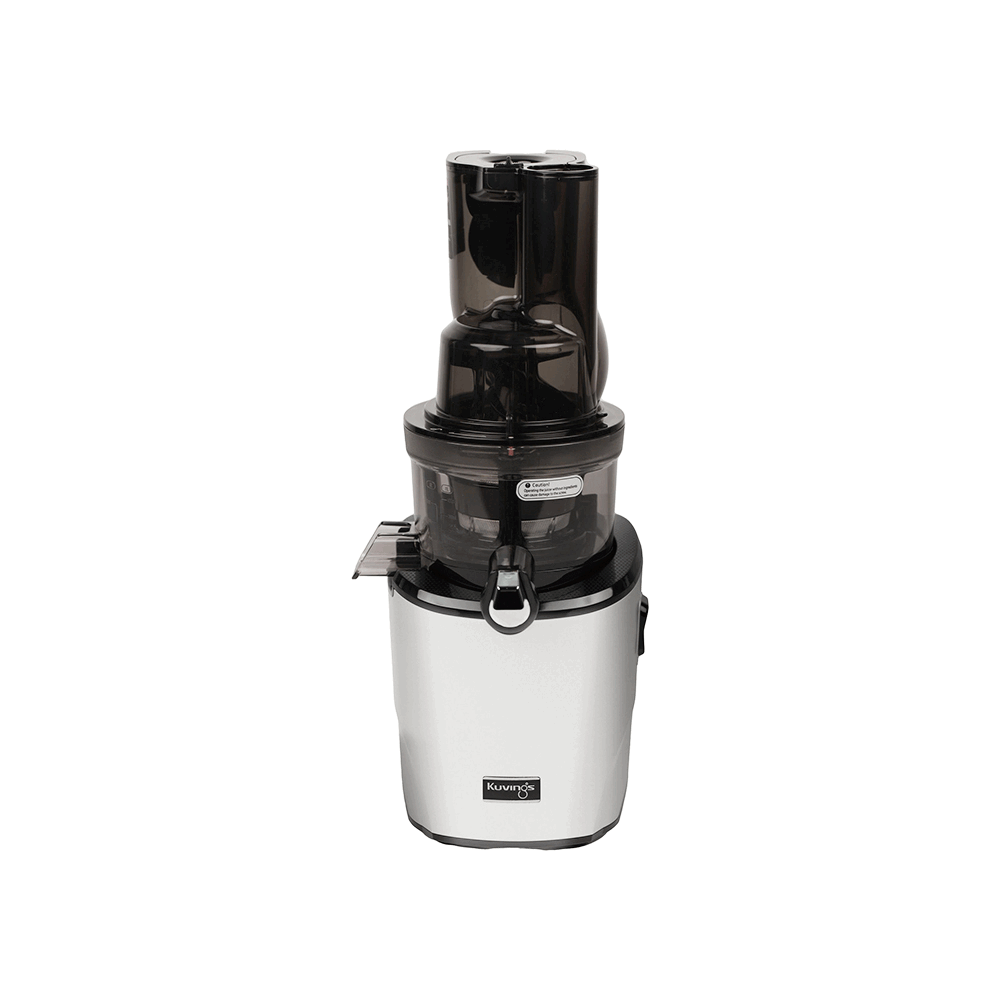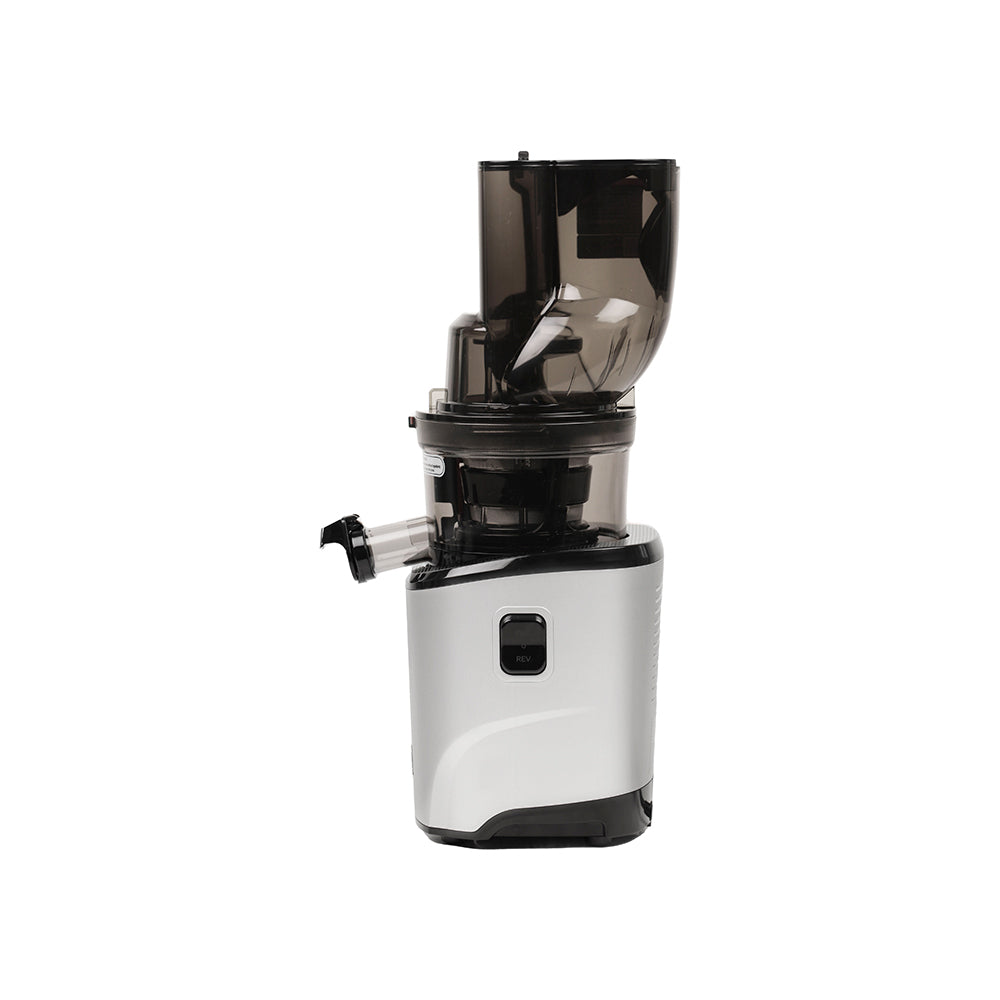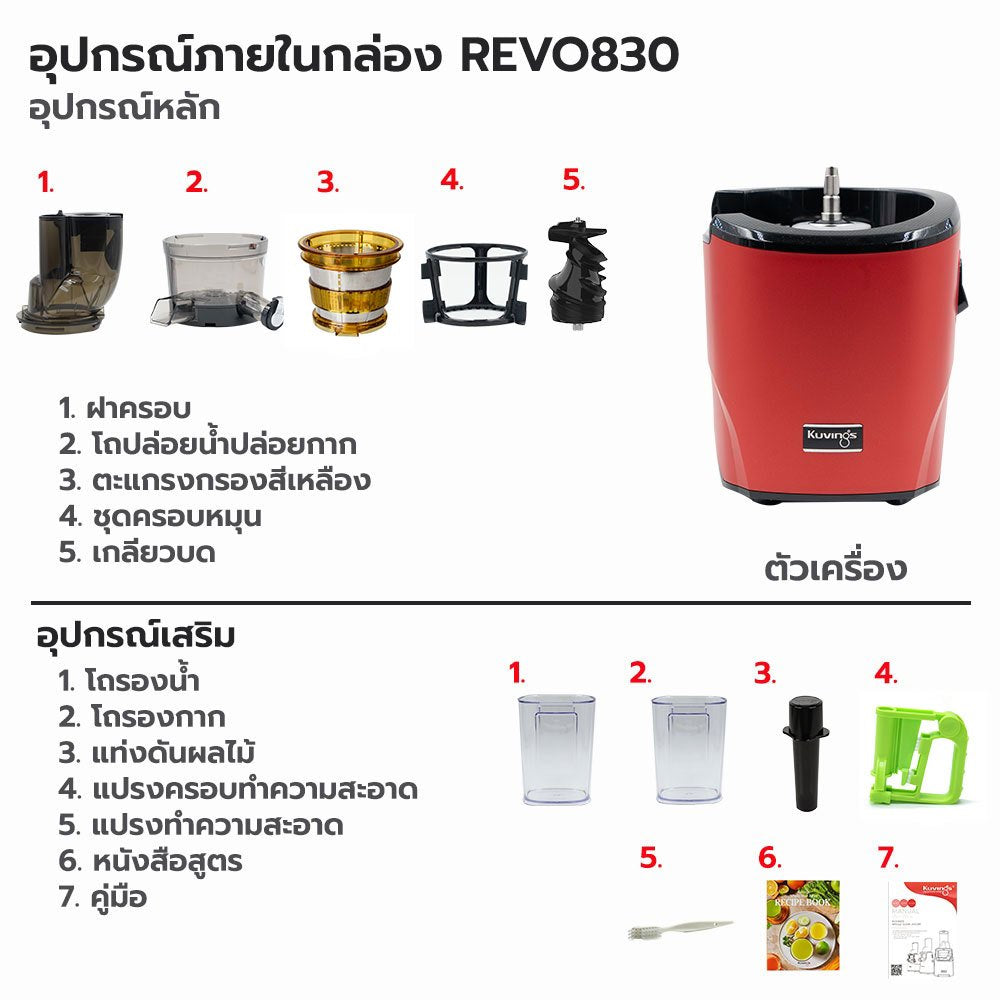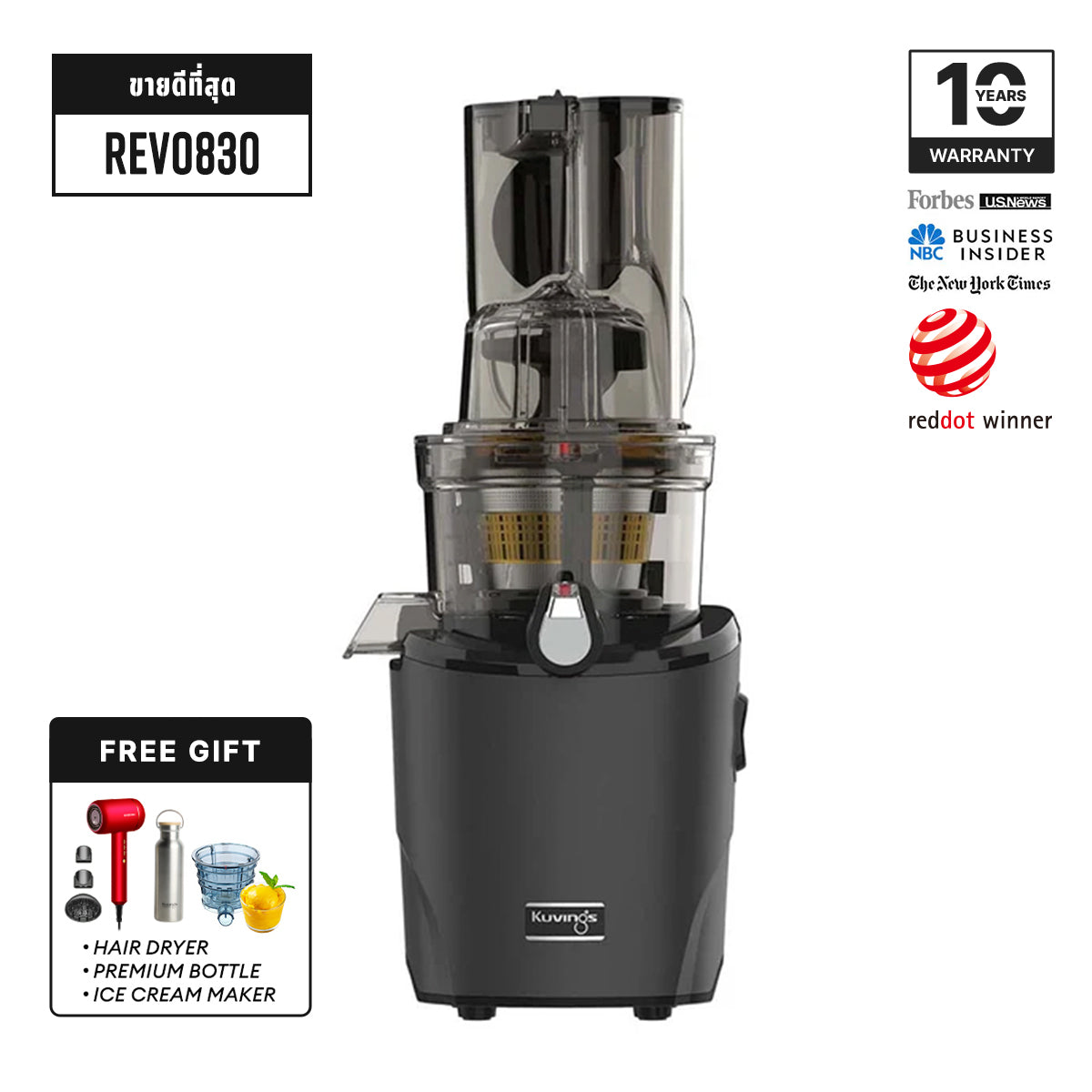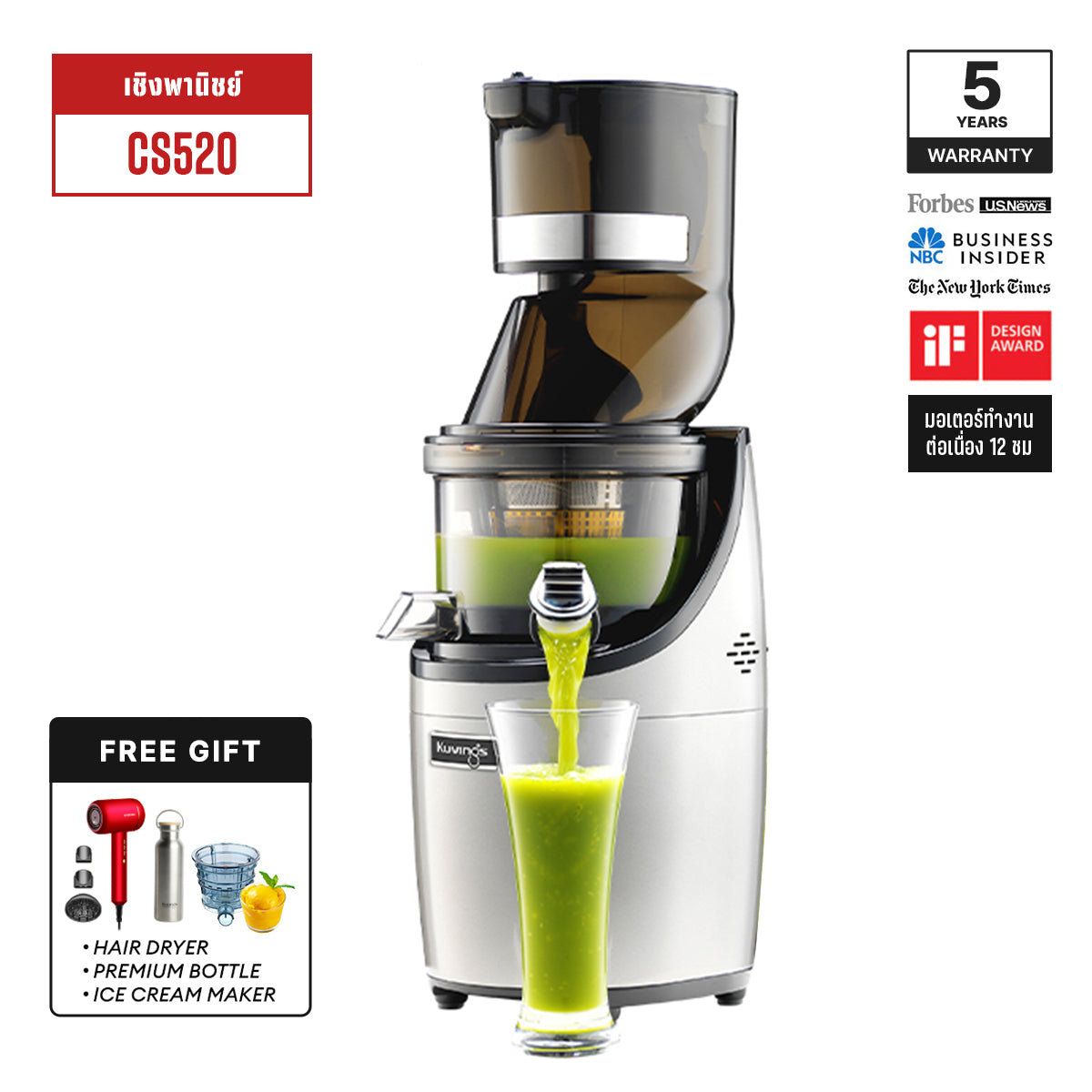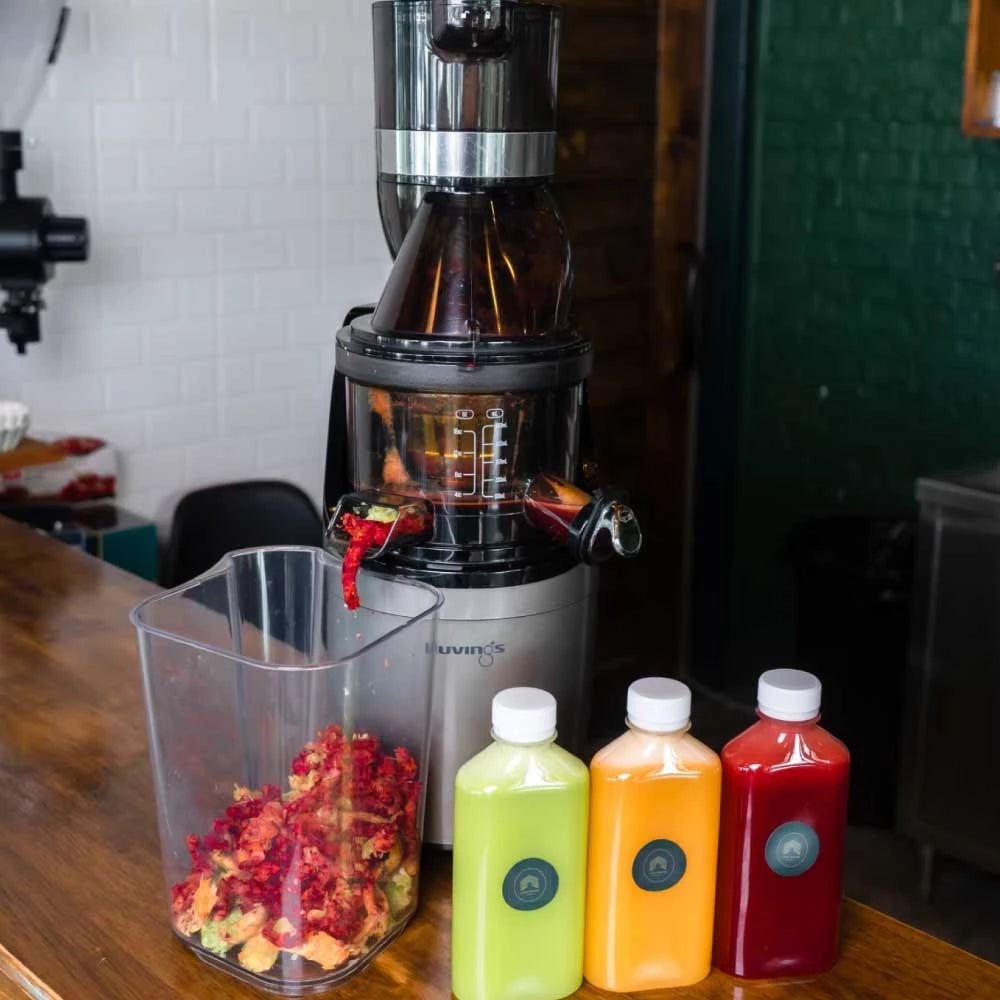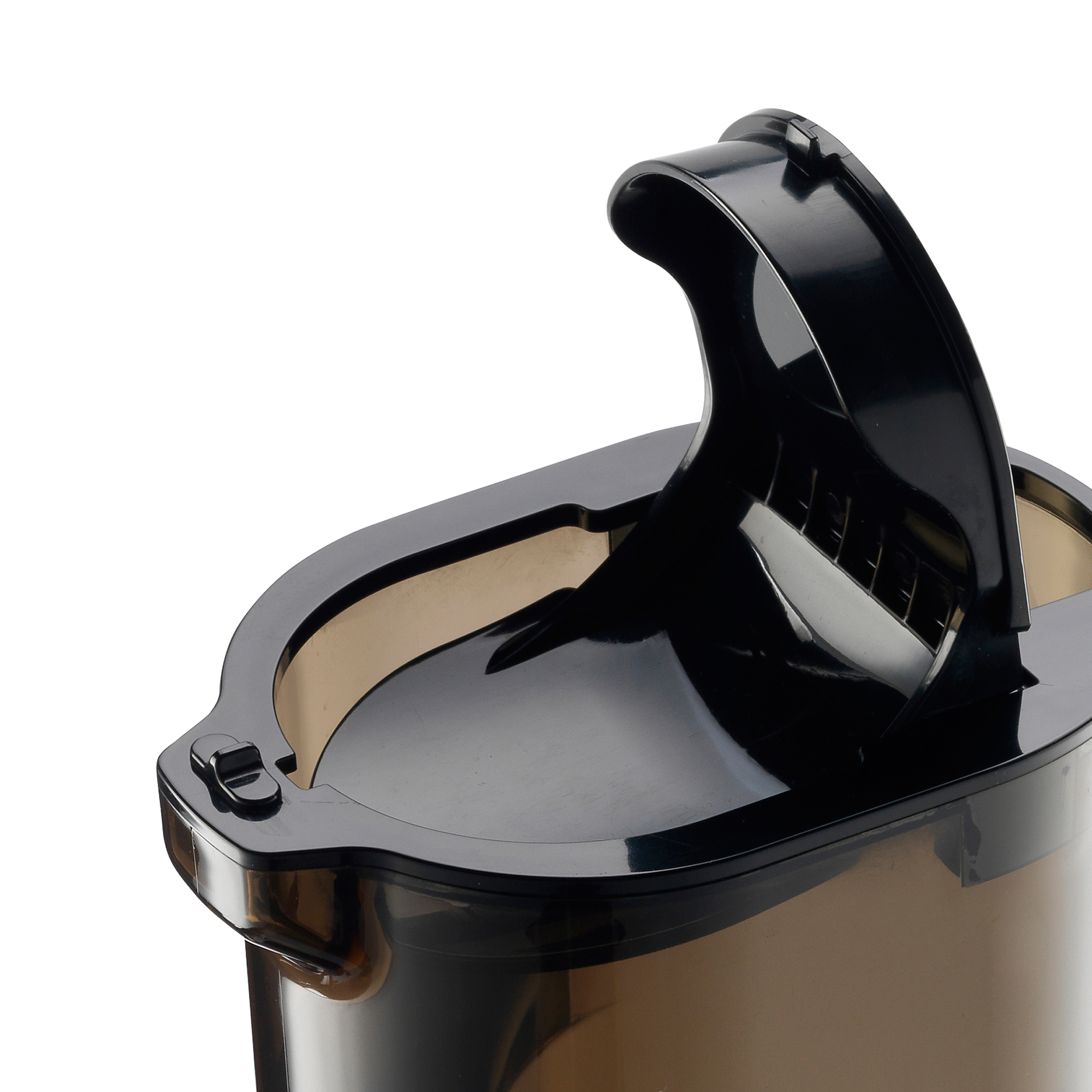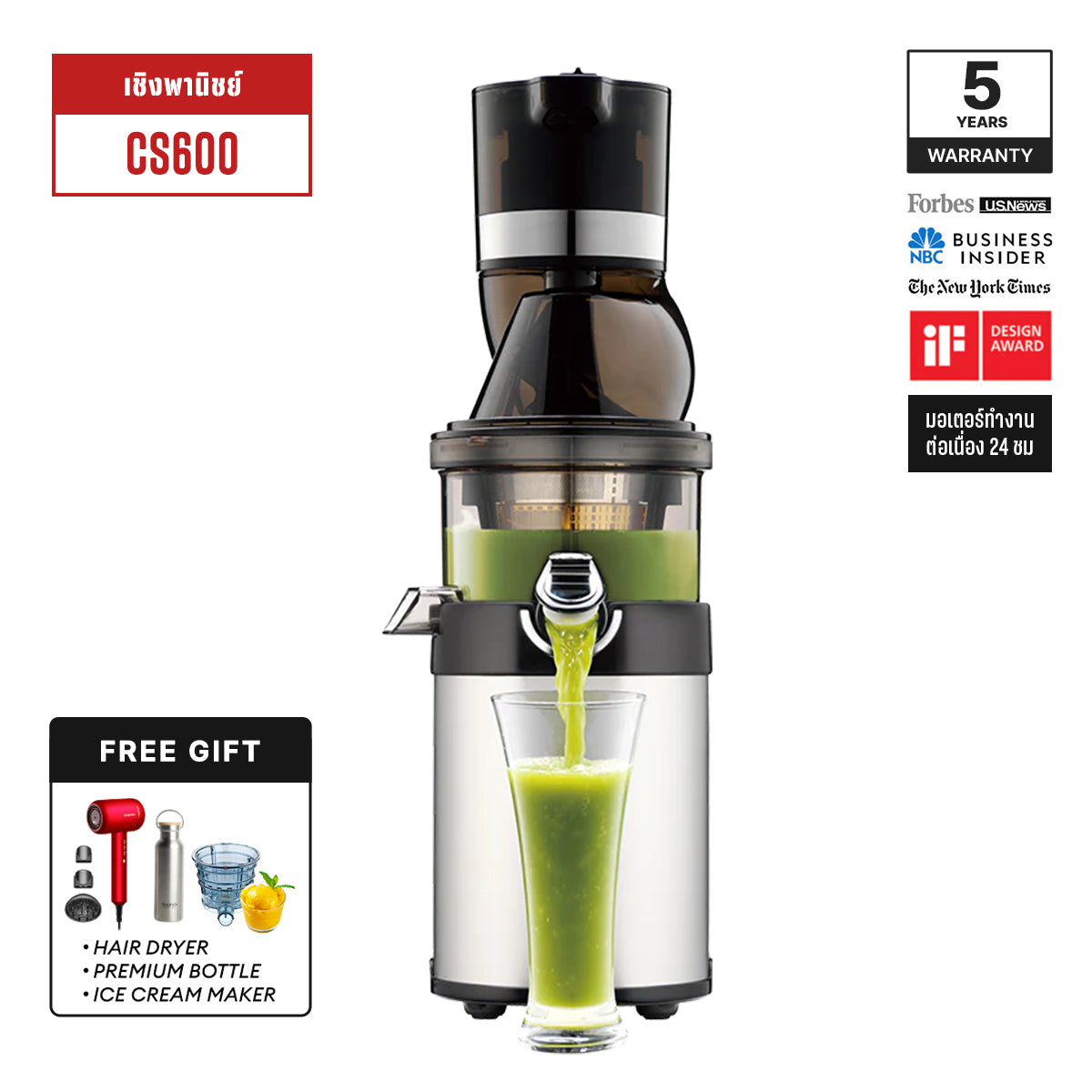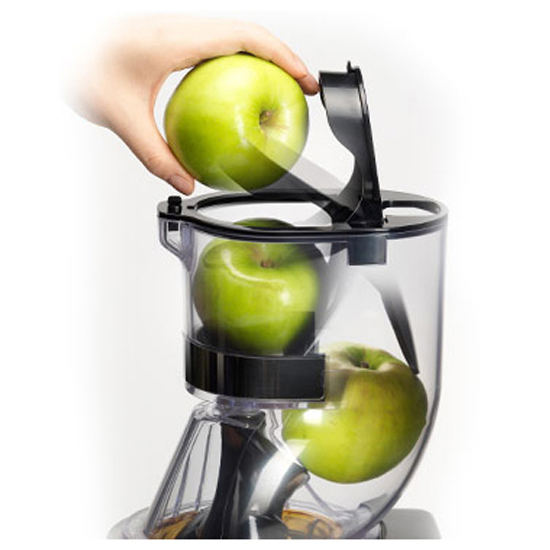This juice recipe is a variation on the well-known Bloody Mary cocktail. Instead of the traditional vodka and hot sauce, We've got kale and red pepper added to the tomatoes, lime, and celery. What you'll notice right away is that this juice is thick and creamy due to the soluble fiber added to the juice.
Soluble dietary fiber provides food and nourishes the gut microbiome, which promotes digestive health. No need to drink a lot. And of course, if you don't like it spicy, you can omit the chilli🔥

🥤 Taste
I love the fresh, spicy tomato flavor of this juice recipe. It has a salty, herbal taste from kale.

🥗 Ingredients
4 stalks of celery
3 tomatoes
1 lemon
1 red chilli (optional)
1 tablespoon tamari
Time: 5 minutes

📃 Preparation
Kale
• Remove leaves from the main stem. (You can squeeze the stalks.)
• Roughly chop the leaves.
Sarari
• Chop the stem into small thumb-sized pieces all over the stem (this will shorten the long cellulose fibers. and prevents it from wrapping around the press)
• You can juice celery leaves. But it will increase the bitterness. So discard it if you don't like it.
• REVO830: No need to chop into small pieces.
• AUTO10: Cut a long piece to fit the hopper.
tomato
• Remove the green leaf stems.
• All fruit juices.
lemon
• Remove the sticker and cut off the hard end.
• Cut the lemon into circles, removing the peel, to increase the flavor and make more lemon juice.
Chilli
• Cut off the stem ends.
• Cut it in half lengthwise and remove the seeds if you don't want it too hot. Otherwise, set aside.
📋 How to make cold pressed juice
Start with the tomatoes as they are the softest ingredient in this recipe. Add them one at a time to the juicer and allow each one to press through before adding more. Next, squeeze the chopped kale, handfuls at a time, adding in the chilies, if using. Then add handfuls of chopped celery and finish by adding the lemon slices all at once. After you've made the juice, pour the tamari into the juice pitcher and mix with a spoon before serving.
Tip: You can use Worcestershire sauce or soy sauce instead of tamari.
AUTO10 layer: Kale, Tomato, Celery, Lime, Chili.
🌿 Health benefits

Kale
Kale is one of the most nutrient-dense foods on the planet. Its most beneficial component is its ability to relieve inflammation. Because it contains antioxidants and organic sulfur.
Nutrition: Kale contains isothiocyanates that protect the stomach from H. Pylori bacteria. A nutritious leafy vegetable that has incredible healing and rejuvenating properties. Kale is rich in omega-3 fatty acids, chlorophyll, amino acids, vitamins A, C, E, K, B-complex, and minerals such as iron, magnesium, copper, and potassium.
Cardiovascular / Circulatory System: Kale is high in antioxidants such as vitamin C, beta-carotene, and flavonoids. These antioxidants help reduce oxidative stress and inflammation, which are risk factors for cardiovascular disease. It is also rich in potassium, an important mineral that helps regulate blood pressure and helps lower blood pressure and reduce the risk of stroke.
Muscular System: Kale is beneficial to the muscular system due to its high content of vitamins, minerals, and antioxidants. It is especially rich in vitamin K, which plays an important role in maintaining strong bones and muscles. Vitamin K helps regulate calcium, which is needed for muscle contraction. Kale is also a good source of iron, which is necessary for hemoglobin production. This is a protein in red blood cells that carries oxygen to the muscles. Including kale in your diet can help support muscle function, repair, and overall muscle health.
Nervous system: Kale also provides a good amount of plant-based omega-3 fatty acids in the form of alpha-linolenic acid (ALA), which is important for good brain health.

Celery
Technically Celery is an herb. But we eat and cook it like celery. It is a versatile vegetable that has many health benefits. Due to its unique nutritional value, celery juice is very alkaline in the body. This is especially important after exercise to help flush lactic acid from the body. If you want to learn about the amazing benefits of drinking celery juice, I highly recommend the book "Celery Juice" by Anthony William.
This is why celery is so good for the system. In our body:
Nutrition: Celery is low in calories. But it is rich in essential nutrients such as vitamin K, vitamin C, potassium and folate. It also contains antioxidants such as flavonoids, beta-carotene and vitamin C.
Cardiovascular System: Celery contains compounds called phthalides. This lowers blood pressure by relaxing the muscles around your arteries and helping them expand. The high potassium content in celery can help control blood pressure levels.
Digestive system: Celery is an excellent source of dietary fiber. which is necessary to maintain a healthy digestive system Fiber helps regulate bowel movements. Prevent constipation and may reduce the risk of digestive disorders such as irritable bowel syndrome (IBS) and diverticulitis.
Immune system: Celery contains antioxidants such as vitamin C and flavonoids. This helps protect cells from damage caused by free radicals. These antioxidants can help strengthen the immune system and reduce the risk of chronic disease.
Inflammatory response: Celery contains compounds such as luteolin and polyacetylene. which has anti-inflammatory properties These compounds may help reduce inflammation in the body, which is linked to many chronic diseases.
Detoxification: Celery is a natural diuretic. This means that it can help flush out toxins from the body by increasing urine production. It also contains compounds that may help stimulate liver enzymes which are involved in the detoxification process.

Tomato
Tomatoes are versatile fruits that are botanically classified as berries. They come in a variety of colors, shapes, and sizes, with flavors ranging from sweet to tart. Rich in vitamins, minerals and antioxidants. Makes it a healthy food supplement.
Nutrition: Tomatoes are a good source of vitamins A, C and K. They also contain potassium, manganese and are rich in antioxidants.
systems: Tomatoes are a source of nutrition that is beneficial to all systems of the body. Rich in vitamins A, C and K, which are essential for vision. immune system function and blood clotting It also contains minerals like potassium and manganese, which are important for heart health. muscle work and bone health Tomatoes are also packed with antioxidants like lycopene, beta-carotene, and vitamin C, which help reduce inflammation and oxidative stress. Reduce the risk of chronic diseases such as heart disease and cancer.
Cardiovascular / Circulatory System: Tomatoes are a rich source of antioxidants such as lycopene, vitamin C and beta-carotene. These antioxidants help reduce inflammation and oxidative stress in the body, which are risk factors for heart disease. Lycopene, the carotenoid pigment that gives tomatoes their red color It is linked to a lower risk of heart disease. It may help reduce bad cholesterol (LDL) levels and reduce the risk of blood clots. Tomatoes are also a good source of potassium. which is a mineral that helps control blood pressure Consuming potassium-rich foods, such as tomatoes, can help lower blood pressure and reduce the risk of heart disease.
Digestive System: Tomatoes are not only delicious. But it's also incredibly nutritious. Because it contains lycopene which is an outstanding nutrient Lycopene is extremely beneficial for liver health. This is because it protects the liver from cell damage. and supports the safe and effective detoxification of red blood cells. This makes tomatoes a great addition to promote digestive health and overall well-being.
Muscular System: Tomatoes are beneficial for the muscular system as they contain many nutrients. It is a good source of potassium. Which is necessary for muscle contraction and maintaining electrolyte balance. Tomatoes also contain antioxidants such as vitamin C and lycopene. This reduces inflammation and oxidative stress in the muscles. Vitamin K in tomatoes is also important for bone health. Helps support muscle structure and prevent muscle weakness Including tomatoes in your diet can help support muscle function, repair, and overall muscle health. This makes tomatoes a valuable addition to any diet.

Lemons are a must-have ingredient in any juicing kitchen. Helps make vegetable juice taste better. And helps the juice keep for a long time when stored in the refrigerator. Lemons are rich in bioflavonoids, which can strengthen the immune system and significantly reduce inflammation in the body. Lemon juice is known to be extremely beneficial for colds, coughs, and sore throats. Lemons are not only bright and citrusy, they are also delicious. But it also has many health benefits. This is why lemons are good for various systems. In our body:
Nutrition: Lemons are low in calories. But it has high vitamin C. It is a powerful antioxidant that protects cells from damage. It also contains citric acid, potassium, and other nutrients. that helps maintain overall health
Digestive system: The citric acid in lemons can help improve digestion by stimulating the production of stomach acid. This can help with digestion and prevent digestive problems such as indigestion and bloating.
Immune System: Vitamin C is essential for a healthy immune system. Lemons are a good source of vitamin C. This can help boost the immune system and reduce the duration and severity of colds and flu.
Detoxification: Lemons are often used in detox diets because they can help cleanse the body and promote the elimination of toxins. The citric acid in lemons stimulates the liver, which is the body's main detoxification organ. Lemons act as a cleanser and astringent. They squeeze toxins out of tissues and stimulate the liver to detoxify. Lemon juice is also useful in removing toxins in the form of old medicine residue from the body.
Skin Health: Antioxidants in Lemons Including vitamin C It can help reduce signs of aging and improve skin health. Lemon juice can also be applied topically to reduce dark spots and blemishes on the skin.
Hydration: Lemon water is a refreshing and hydrating beverage that can help you stay hydrated throughout the day. Drinking enough water is important to overall health. and can help improve energy levels and mood.

Chili (red)
Red pepper isn't just your favorite superfood. They also have many health benefits, however, it is important to consume them in moderation. This is especially true if you have diarrhea or other digestive problems. This is why red chilies are good for the system. In our body:
Nutrition: Red chilli are rich in vitamins A, C and E, as well as minerals such as potassium and folate. They also contain capsaicin, a pungent compound that has been linked to various health benefits.
Cardiovascular system: Capsaicin in red peppers may improve heart health by lowering cholesterol levels. improve blood circulation and lower blood pressure It can also help prevent the formation of blood clots. This can reduce the risk of heart attack and stroke.
Digestive system: Red chilies can stimulate the production of stomach acid, which can improve digestion. It may also help reduce the risk of stomach ulcers by killing harmful bacteria in the stomach.
Immune system: The high vitamin C content in red peppers can help boost the immune system and protect against infections. It also contains antioxidants that fight free radicals and reduce inflammation in the body.
Metabolic Health: Capsaicin boosts metabolism. which can help reduce weight It may also help control blood sugar levels, which is beneficial for diabetics.
Pain relief: Topical application of capsaicin has been found to reduce pain by desensitizing nerve receptors. It is often used in creams and patches to relieve pain from conditions such as arthritis and neuropathy.

Gary Dowse
Master Juice Chef, Kuvings Australia
Gary is a manpower in the world of plant-based juices and nutrition. which has a definite desire for the health and well-being of the body With certification in natural juice therapy and whole plant nutrition, Gary is a committed educator who empowers people to understand and utilize the benefits of juicing and eating. Food that comes from plants
Through his growing collection of books and knowledge-rich online courses, Gary is a leader in supporting and promoting the ability to prevent and restore through the power of embracing a lifestyle rich in vibrant juices and whole plant foods.
His qualifications are to make sure people are inspired and guided on their journey to health and their best life.






